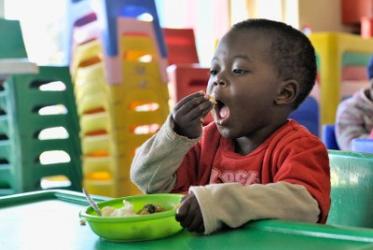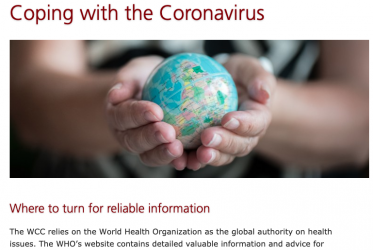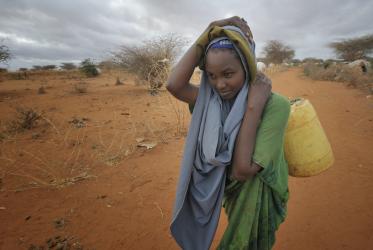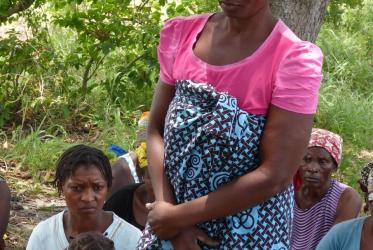Displaying 101 - 120 of 179
G7 must address famine
22 May 2017
Applications open for WCC Eco-School
10 May 2017
UN discussion focuses on women, HIV and property rights
21 March 2017
“It’s time to be brave, to form diverse partnerships”
02 March 2017
Seven weeks of Lent highlight water crisis in Africa
01 March 2017
“Overcoming economic injustice” vision of WCC’s Athena Peralta
23 February 2017
During Lent, a “carbon fast” can honour God’s creation
09 February 2017
Food and land justice focus of Mozambique workshop
19 December 2016
Plans for 2017 decided by WCC Executive Committee
01 December 2016
Water justice focus of consultation in Nigeria
29 November 2016













